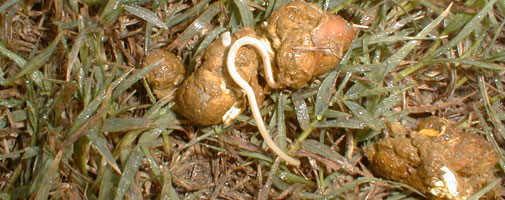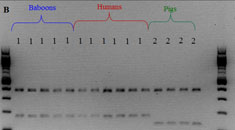
Molecular parasitology: improved diagnostics, genomics and transcriptomics
We study miRNA and exosomes released from helminths to explore their role in the host-parasite interplay and their usefulness in fast, reliable, and sensitive diagnostic tests, essential for proper parasite control in animals (and humans). We also use molecular methods to identify parasites and explore transmissions routes.

A thorough knowledge of molecular phylogeny and identity in combination with traditional morphological analysis is required for both improving classical methods and development of new molecular test.
 We are presently involved in test development for intestinal and tissue migrating roundworms, improved faecal egg count reduction tests using PCR-differentiation, and improved egg counting techniques.
We are presently involved in test development for intestinal and tissue migrating roundworms, improved faecal egg count reduction tests using PCR-differentiation, and improved egg counting techniques.
Some worms from animals can be transmitted to humans and are called zoonotic. We explore the zoonotic potential of the giant round worm (Ascaris), the whipworm (Trichuris) and the roundworms of dogs and cats (Toxocara spp.) using experimental infections in pigs, and by molecular typing of worms obtained from humans and pigs.
The molecular data are used to establish the phylogeny and evolutionary relationship between worms in animals and humans. Genomics and transcriptomics are used to obtain fundamental insight into the biology of parasites – how they invade and live in the host.
This information is also important for our understanding of the immune-modulating properties of parasitic worms and for identification of novel drug targets.
